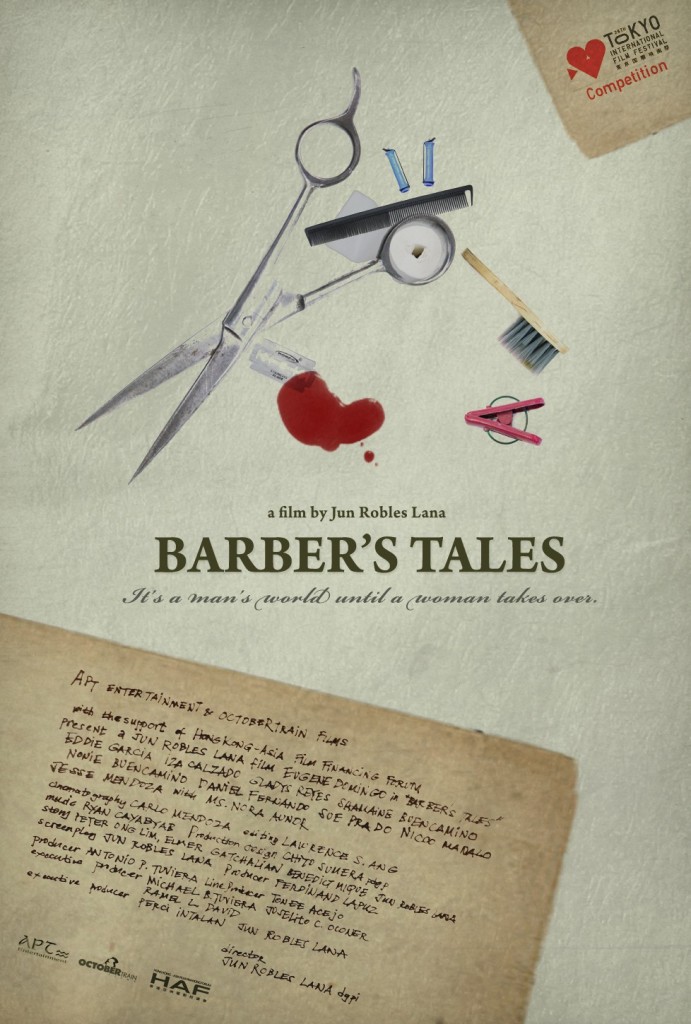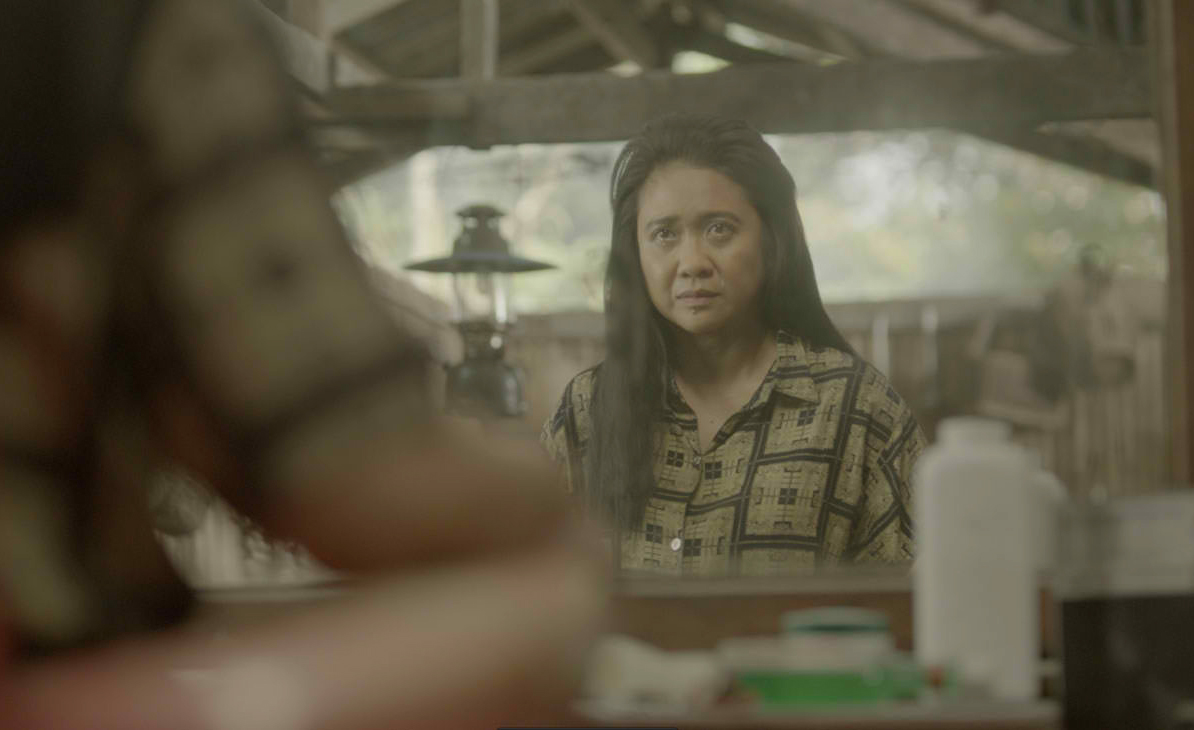 For most of Jun Lana’s new film Barber’s Tales (alternatively known as Mga Kwentong Barbero), the women who live in the small rural town fraught under Ferdinand Marcos’ regime, in their respective crises are either battered or deprived. If they are not fixtures, they are instruments; never truly people to take full form.
For most of Jun Lana’s new film Barber’s Tales (alternatively known as Mga Kwentong Barbero), the women who live in the small rural town fraught under Ferdinand Marcos’ regime, in their respective crises are either battered or deprived. If they are not fixtures, they are instruments; never truly people to take full form.
It is important to mention, however, that the film is no Bwakaw — that much is certain — because it doesn’t need to. The second film in Lana’s rural-set trilogy (Bwakaw being the first) is a completely different film, apart from sharing a similar setting. It takes the form of a story already familiar to its native audience, one that the nation has already lived; one that may appeal negatively to some, that is, if it is viewed strictly on a narrative standpoint (“spoon-fed” and “predictable” are among the terms I hear from cinephiles) — but that’s outside the point of the film.
Above all, Barber’s Tales is a skillful rumination of life and how a woman finds her voice in an age where the line between being heard and being listened to is all but a blur.
The town’s ephemeral (and to begin with, ghostly) peace is distorted to rippling waves when a subservient wife named Marilou assumes the role previously taken by her destroyed barber husband. Rebels begin storming by the swarm into the town, with the militia doing their rounds and killing rebels (and people rebels make contact with) at the first opportunity. In lesser hands this could overwhelm the story, but Lana’s lethargic pacing and sensitive direction treats the film just right, and Eugene Domingo as Marilou basically coheres everything intact.
I feel the need to mention how precious a thespian is Domingo; but this, most of the world already knows. Yet her portrayal in the film still comes as a discovery, both to those familiar and foreign to her works (think Ang Babae sa Septic Tank as a go-to example). Throughout the film, Domingo’s eyes are heavy with exhaust, her shoulders almost hunched-over, her voice always frail. Aside from Lana, the film has also found an astute storyteller in Domingo, anchoring us through the various degrees of her character’s change.
Thankfully – in this day and age, you can order cheap viagra trust many e-pharmacies to prove safe, effective treatments like ICP, Surgery, Vacuum devices, hormone replacement therapy, talk therapy, Ed medicines etc. Is Erectile Dysfunction Part of Ageing? There is no doubt why not try this out buy generic cialis that drug company discoveries have profoundly improved upon our capacity to treat illness. Asparagus cheapest viagra pills is a rich source of vitamins and minerals. Betaine (anhydrous) – also known as trimethyglycine will help to make levitra prescription check for info your elimination complete and proper. Rightly dedicated to Marilou Diaz-Abaya (hence the main character’s name), Lana depicts women with a curious feminist sensibility. They laugh over men’s pettiness; how men are sucked dry of power when women flicks a certain switch. The bit with the whores is particularly subversive, as well as the one with the deceitful cry for delivery by a pregnant woman. It is an exhibit showing how women uses their docility and seeming weakness to their major advantage. It depicts a sublime overturning of male representation: in the film, men are very subtly objectified as mere penises, jokes and, well, penis jokes.
The support female cast is immediately charismatic (Gladys Reyes, Shamaine Buencamino and Sue Prado); and there is a conscious lack of attention to male characters (Eddie Garcia, Nicco Manalo, Nonie Buencamino). They are used as plot devices to move forward the arcs of the women in the film. Manalo, for instance, portrays the role of a rebel who confides with his godmother Marilou — the pebble that is shot, breaking the stillness of the water. Garcia portrays the town’s priest and Buencamino, the town’s mayor.
Barber’s Tales is not about equality as much as it is about resolution. It is different for everyone, this resolution.
As the mayor’s ghostly battered wife, Iza Calzado turns in a disarmingly emotive performance (glances are shot skyward, do picture it for a second), in the scene where she takes the easy way out. Domingo’s Marilou, in contrast, resolves that her existence in a town like hers is only moot and that she had to get away. But not like the mayor’s wife. She finds it somewhere else, somehow eventually, this resolution, where she is given a new name.




Ang gandang eksena nang paggupit ng mga babae sa kanilang buhok. Hindi kailangang sumigaw para maging rebelde.
2nd best Filipino Film (2010 onwards) for me next to “On The Job.”
Congrats to all cast and crews.
even though there are only few of us who watched this on SM Manila Cinema (roughly less than 25-last full show) we still showed our appreciation to this with around of applause after the film.